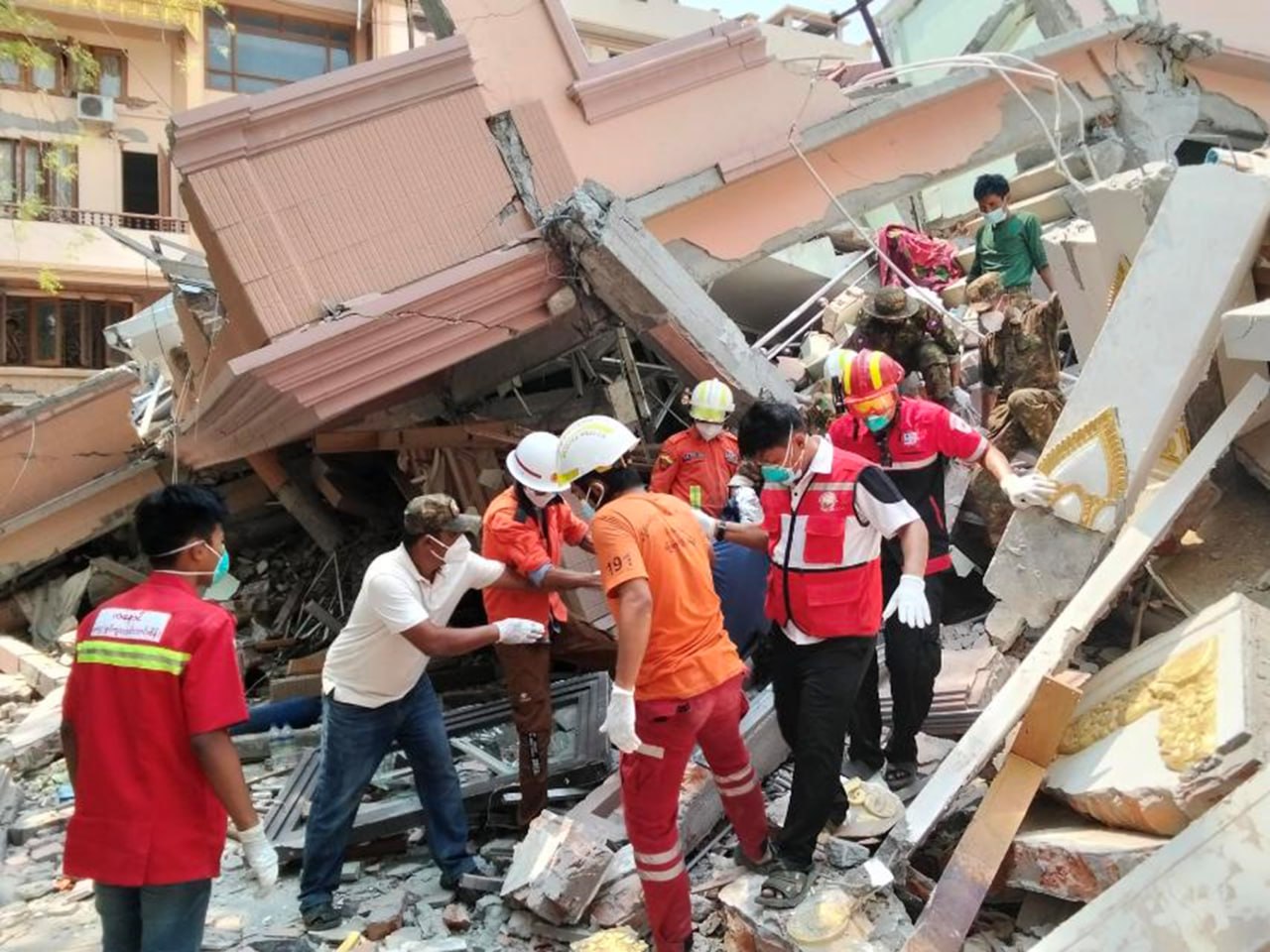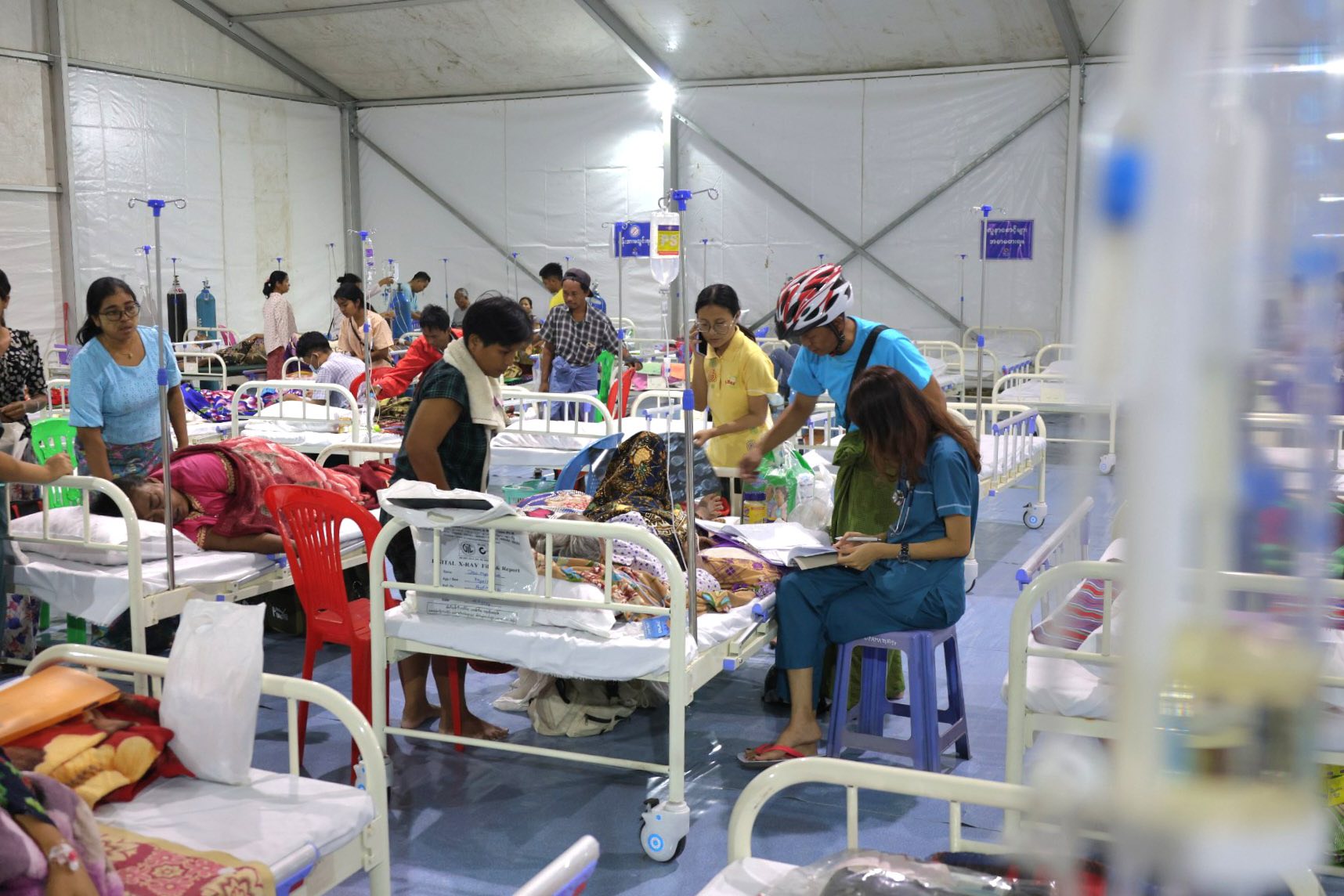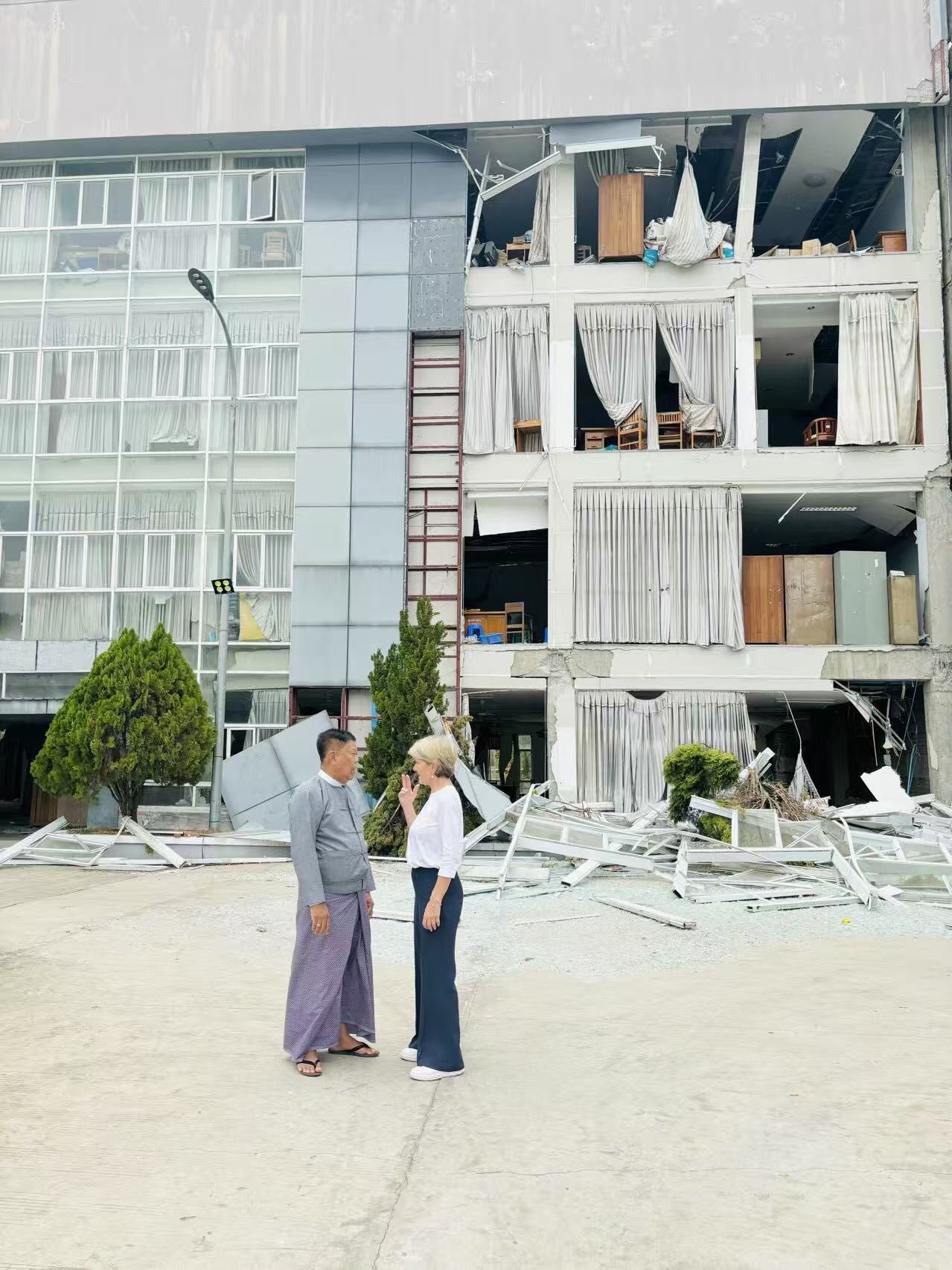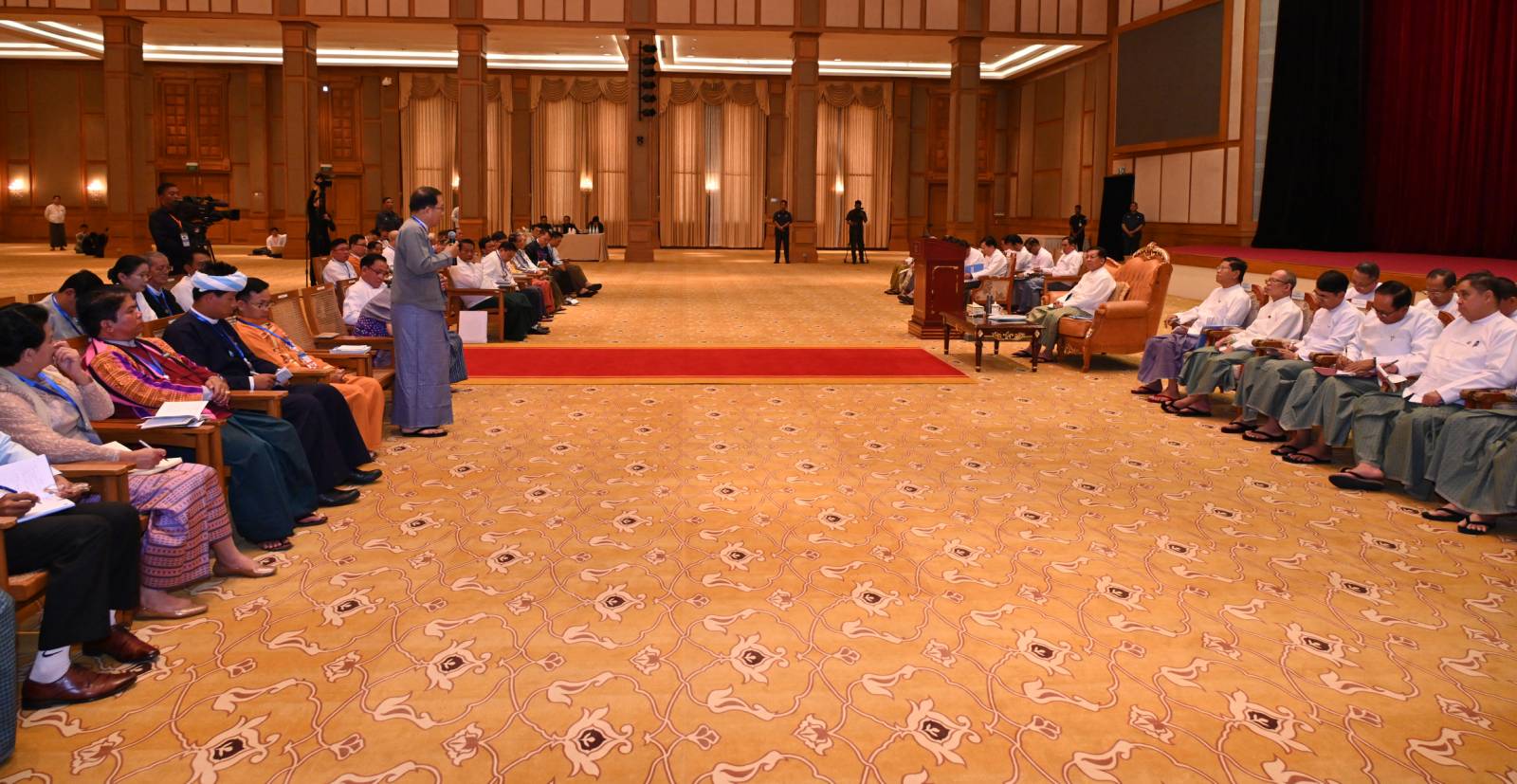CNI Article
11 April 2025
In Myanmar where there is no civilian or elected government, with unstable politics armed battles are taking place throughout the country and the number of IDPs has been over three million.
Due to battles, homes, religious buildings and hotels are being destroyed while the rule of law and stability are also very weak.
Moreover, with the loss of free movement between regions, socio-economic conditions are also declining along with the decline in trade. Myanmar, which is facing such general crises, has been hit again by natural disasters. Rakhine State suffered Cyclone Mocha in 2023 and the people there felt the pinch of flood in 2024 before the reconstruction was finished.
On the evening of April 8, leader of the Information Team, Maj-Gen Zaw Min Tun, said that a 7.7-magnitude earthquake struck Myanmar on March 28, 2025, killing 3,645 people, injuring 5,017, and leaving 148 missing. (The numbers may continue to grow.) Similarly, roads, bridges, homes, hotels, religious buildings, telecommunications networks, government office buildings, and government housing were destroyed.

The earthquake shook central Myanmar, badly affecting Mandalay, Myanmar's second economic capital, and Naypyidaw, the administrative capital, which both of cities are de-conflict zone. Therefore, UN Secretary-General Guterres has said that between 17 million and 20 million people in Myanmar could be in need of humanitarian assistance due to the earthquake, with more than 9 million people in Mandalay, Sagaing and Naypyidaw, which were the hardest hit by the earthquake, in need of humanitarian assistance.
In any case, the earthquake may cause (1) further economic decline, (2) more unemployment, (3) more psychological distress, (4) weaker social and health services, (5) more small and medium-sized enterprises to cease operations, (6) more hotel and tourism sectors to decline, (7) more people in need of assistance (refugees), (8) more looting, and (9) more deterioration of the rule of law.
To overcome these situations, (1) earthquake relief and rehabilitation efforts will need to be strengthened, (2) the rule of law and stability will need to be strengthened, (3) battles will need to be reduced, (4) international assistance will need to be obtained, (5) regional people will need to unite and support each other, (6) commodity prices will need to be stabilized, and (7) roads, bridges, and communication networks will need to be restored as soon as possible.

In addition, (8) the government mechanisms will need to be restored as soon as possible; (9) infrastructure will need to be rebuilt as soon as possible; (10) electricity will need to be restored in most areas; (11) assistance will be needed to help small and medium-sized enterprises recover; (12) social services and health services will need to be restored; (13) an economic development strategy will need to be in place; and (14) international investment will need to be brought in.
If these conditions cannot be established, the country may struggle with economic decline and higher unemployment rate amid war, earthquakes, floods, and storms.
It is very difficult to hold elections under such circumstances. On the other hand, efforts are being made to hold elections as a way to resolve the general crisis.
However, experts said that holding elections amid the earthquake and war crises is very difficult.
Because, from a justice and humanitarian perspective, the Myanmar people are facing all sorts of disasters, they point out.
In any case, if elections are held without fail, there will be no elections and representatives respected by the public and the international community. Political parties and those who want to be members of the Hluttaw in Myanmar are currently isolated from the public after the earthquake.

Especially in the general crisis facing the public, political parties and those who want to be members of the Hluttaw only want to get the public's votes, but the public lacks the confidence to vote.
In a country without a civilian or elected government and facing battles, economic decline and various disasters like Myanmar, it will be very dificult, pointed out experts.
However, experts point out that in a country that has been destabilized by various disasters and wars, elections can be held if (1) the economy is stable, (2) disaster-affected and those in need of assistance can be restored, (3) infrastructure (government offices, roads and bridges, polling stations, health and education facilities, telecommunications networks, parliament) can be rebuilt, (4) the areas where the elections will be held are safe and stable, and (5) the international community and the public believe that the elections are necessary.
Haiti was hit by a 7.1 magnitude earthquake in 2010, and reconstruction efforts are still ongoing (not yet finished). The following aspects are often considered as the main aspects in reconstruction efforts in earthquake-affected countries.

(1) Rebuilding infrastructure
Reconstruction of houses, hospitals, schools, roads, bridges, and communication networks.
Projects to provide access to clean water and electricity.
(2) Social rehabilitation
Providing psychological support and treatment.
Assistance for the homeless.
Protection of children and the vulnerable.
(3) Working to revive the economy
Creating employment opportunities.
Supporting small and medium-sized enterprises.
Rehabilitating agriculture and fishing.
(4) Disaster management
Prepare for future disasters.
Build disaster warning systems.
Improve emergency response systems.
Myanmar currently needs to undertake earthquake recovery and build sustainable development. These two processes are not easy to carry out without international assistance.
So, how can the earthquake disaster and the expectation of holding elections come about? What would happen to the economy and social services of a country without a civilian government (or elected government)? What could happen to the rule of law and stability facing challenges?
What would happen if elections were held amid similar crises? If a government is formed after elections are held, will the government that will come to power be able to address the general crisis in Myanmar? What will happen to Myanmar if elections cannot be held due to the ongoing crisis?




